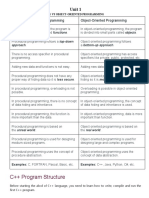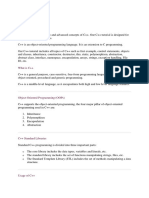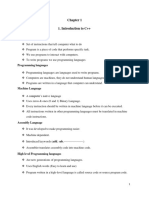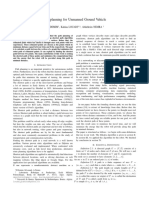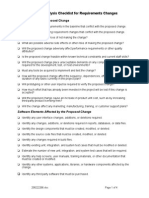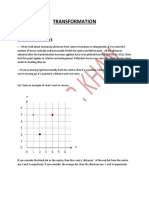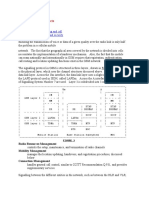0% found this document useful (0 votes)
39 views12 pagesBCAMJ23402DS Using C++ Basics Unit 1
C++ is an object-oriented programming language developed by Bjarne Stroustrup in the 1980s, designed to enhance C with OOP features. The document covers C++ programming basics, including data types, functions, and OOP concepts such as inheritance and polymorphism. It also explains variable declaration, input/output streams, and the advantages of using functions in C++.
Uploaded by
aditya.048001Copyright
© © All Rights Reserved
We take content rights seriously. If you suspect this is your content, claim it here.
Available Formats
Download as PDF, TXT or read online on Scribd
0% found this document useful (0 votes)
39 views12 pagesBCAMJ23402DS Using C++ Basics Unit 1
C++ is an object-oriented programming language developed by Bjarne Stroustrup in the 1980s, designed to enhance C with OOP features. The document covers C++ programming basics, including data types, functions, and OOP concepts such as inheritance and polymorphism. It also explains variable declaration, input/output streams, and the advantages of using functions in C++.
Uploaded by
aditya.048001Copyright
© © All Rights Reserved
We take content rights seriously. If you suspect this is your content, claim it here.
Available Formats
Download as PDF, TXT or read online on Scribd
/ 12








